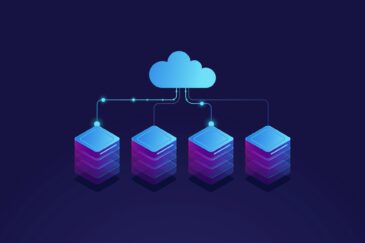On-Premise ERP vs. Oracle ERP Cloud Solutions – What are the Differences?

- March 12, 2024
- Mohammed Nadeem Uddin
- 0
Deployment Model
On-premise ERP software is hosted and maintained on the company’s servers and infrastructure, giving them complete control over the system. However, it requires significant upfront investment in hardware, software licenses, and IT resources for maintenance and updates.
Oracle ERP Cloud is a cloud-based solution in which Oracle hosts and maintains the software on its servers and handles updates and maintenance. This requires lower upfront costs and allows for more effortless scalability.
Costs
While on-premise ERP solutions have lower ongoing subscription costs, they usually require higher initial investments for hardware, software licenses, and implementation. Additionally, there are ongoing maintenance, upgrades, and IT support costs.
Oracle ERP Cloud solutions often have a subscription-based pricing model, where companies pay a recurring fee based on usage patterns or the number of users. This can be more cost-effective for smaller businesses or those looking to avoid significant upfront costs.
Scalability
Hardware and infrastructure constraints can limit scalability with on-premise ERP. Companies might need to invest in additional software licenses or hardware to accommodate growth.
Oracle ERP Cloud solutions offer greater scalability, as resources can scale up or down quickly according to demand. This flexibility helps organizations adapt to changing needs without significant upfront investments.
Accessibility and Mobility
On-premise systems are accessed from within the company’s network, which may limit accessibility outside the office unless additional infrastructure is set up for remote access.
Oracle ERP Cloud solutions can be accessed from any location with an internet connection, making them more accessible and mobile-friendly. This is especially beneficial for teams with remote or distributed users.
Security and Compliance
The company has full control over security measures and compliance requirements with on-premise ERP. However, this also means it is responsible for implementing and maintaining those measures.
Cloud ERP providers like Oracle invest heavily in security and compliance features to safeguard customer data. They adhere to industry standards and regulations, simplifying business compliance.
Implementation Time
Implementation of on-premise ERP systems takes longer due to the need for hardware and software installation and customization. It may take several months or even years to deploy fully.
Oracle ERP Cloud solutions generally have faster implementation times since the provider already hosts and manages the software. Based on the organization’s requirements, implementation can often be completed in weeks or months.
Customization
On-premise systems offer greater customization options since companies directly access the software code and infrastructure. This allows for tailored solutions to specific business processes and requirements.
Oracle ERP Cloud solutions may limit customization since the software is managed by the provider – Oracle. While some customization is possible, it may be more limited than on-premise solutions.
Integration
Integrating on-premise ERP systems with other business applications or legacy systems may require additional development effort and resources. Compatibility issues can also arise, particularly with older systems.
Oracle ERP Cloud solutions offer easier integration with other cloud-based applications and services through Application Programming Interfaces (APIs). This facilitates seamless data exchange and interoperability with other systems.
Upgrades and Maintenance
Upgrading on-premise ERP systems can be complex and time-consuming, requiring extensive testing and downtime. Companies are responsible for managing and scheduling upgrades and applying patches and fixes.
Cloud providers handle upgrades and maintenance for cloud-based ERP systems like Oracle ERP Cloud, ensuring customers can access the latest functionality and security updates without disrupting operations. It reduces the burden on internal IT teams and ensures system reliability.
Disaster Recovery and Backup
Companies are responsible for implementing disaster recovery practises and backup solutions for on-premise applications to safeguard data during hardware failure, natural disasters, or cyberattacks.
Cloud providers offer reliable disaster recovery and backup capabilities as part of their service for cloud-based ERP software like Oracle ERP Cloud. Data is automatically backed up and stored in geographically redundant data centers, reducing the risk of data loss.
Support and Service Level Agreements (SLAs)
Internal IT teams or third-party vendors often provide support for on-premise ERP systems. Service levels may vary depending on the expertise and availability of support personnel.
Cloud ERP providers like Oracle offer comprehensive support services with defined SLAs, ensuring timely issue resolution and minimizing downtime. This includes 24/7 technical support, regular system monitoring, and performance optimization.
Why Rite Software?
Rite Software offers proven expertise in guiding businesses through the decision-making process of migrating from on-premise applications to cloud-based ERP solutions. Leveraging our deep understanding of the best cloud ERP systems, we assist customers in evaluating the benefits of Oracle ERP Cloud against their existing on-premise ERP applications. Our comprehensive approach to Oracle ERP implementation includes thorough assessments of business needs and IT capabilities, ensuring seamless integration and optimization of Oracle ERP applications. With our proficiency in Oracle ERP integration and commitment to delivering the best cloud ERP solutions, Rite Software helps businesses maximize the scalability, accessibility, and security advantages offered by Oracle ERP Cloud, driving growth, efficiency, and innovation.

Services
Products
Company
Copyright © 2025 Rite Software Solutions & Services LLC. All rights reserved.



